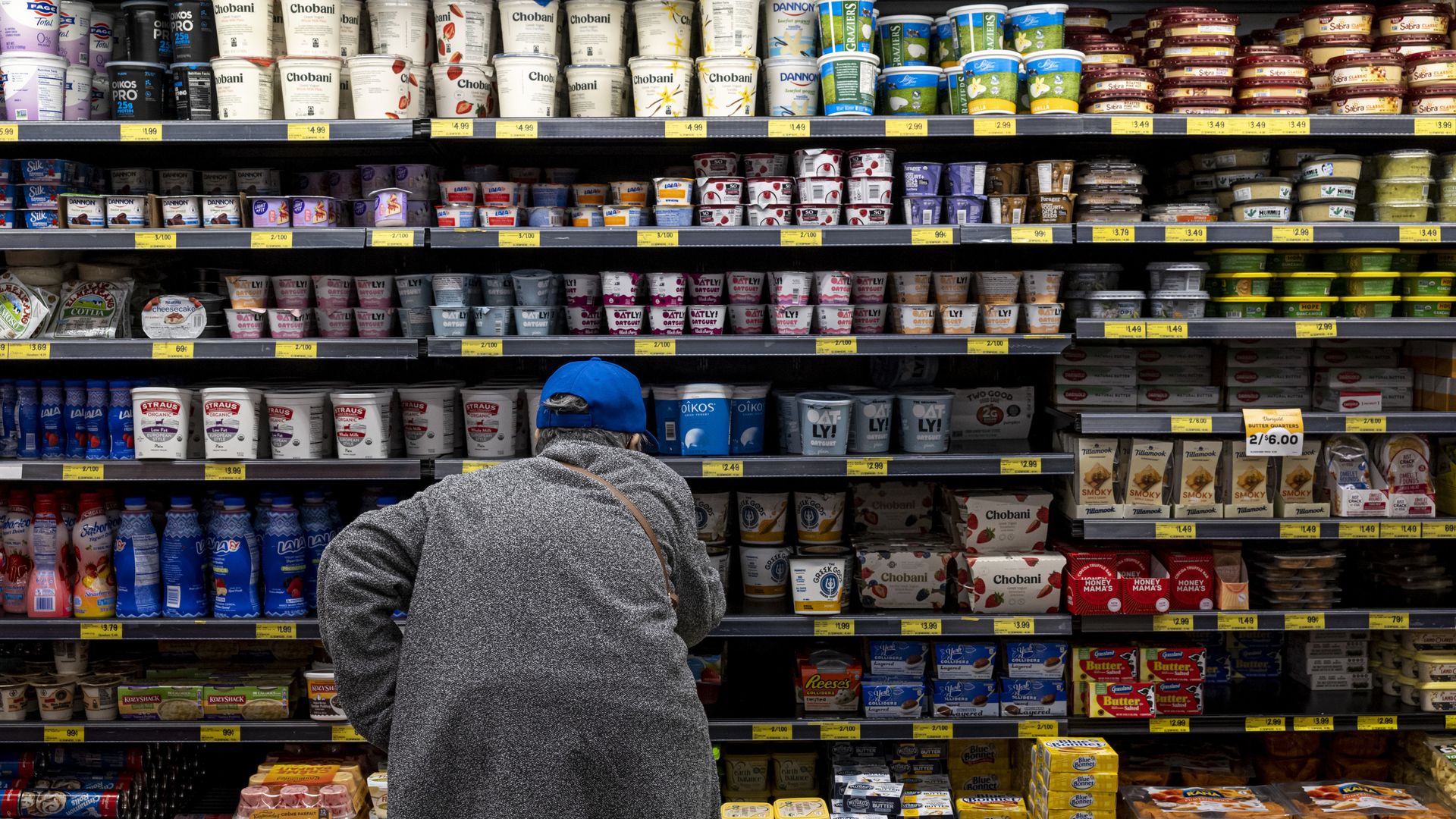SNAP benefit cuts to affect about 12% of San Francisco's residents
Add Axios as your preferred source to
see more of our stories on Google.

A customer shops at a grocery store in San Francisco. Photo: David Paul Morris/Bloomberg via Getty Images
Extra food assistance benefits implemented during the pandemic are ending nationwide today, though the final distribution of funds will happen in March.
Why it matters: The change in federal law means a smaller monthly food budget for San Franciscans receiving CalFresh benefits.
Catch up quick: Since March 2020, pandemic emergency allotments have allowed Supplemental Nutrition Assistance Program (SNAP) households in San Francisco as well as nationwide to receive an extra monthly payment of at least $95.
- Beginning in April, those who rely on CalFresh will stop receiving these extra monthly payments.
By the numbers: About 96,000 people across 70,000 households — about 12% of San Francisco's population — are estimated to collectively lose about $11.5 million a month, according to the San Francisco Human Services Agency.
- Those on CalFresh are estimated to lose between $95 and $517 per month, according to the city.
Threat level: The switch could strain already strapped local food banks amid inflation.
- In January, the San Francisco-Marin Food Bank said it and other food banks in the area are "stretched to the limit by inflation, shrinking government support, and declining donations."
What they're saying: "We know this will create hardship for many people — especially seniors, families with children, and people with disabilities — who will then turn to the charitable food system for support," Feeding America chief government relations officer Vince Hall told Axios via email.
- "I hate to see it go," Patricia Carr, a 73-year-old San Francisco resident whose diabetes requires a special diet, told Mission Local of the additional CalFresh benefits. "I do need it. But God bless the USA they gave it to us at all."
Between the lines: Significantly more people came to rely on SNAP benefits during the COVID-19 pandemic.
- From January 2020 to December 2022, the number of San Francisco residents receiving aid from CalFresh increased by about 51%, according to the SF Human Services Agency.
What to watch: Deepening congressional division over nutrition programs means households can't count on federal relief in this year's farm bill, the legislation that authorizes SNAP, Horn-Muller writes.
- Meanwhile, there are a number of bills currently working through the state legislature that could assist Californians with food affordability and insecurity, including one that would establish a state-funded food assistance program for adult dependents in supervised living facilities or transitional living settings.
This story has been corrected to reflect that Vince Hall is the chief government relations officer of Feeding America, not of San Francisco-Marin Food Bank.
